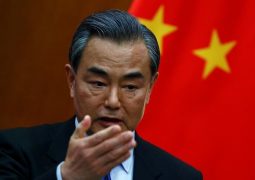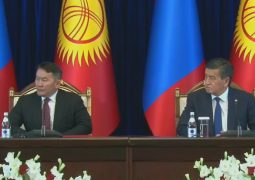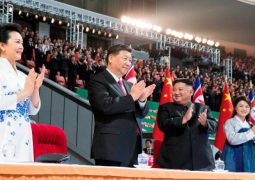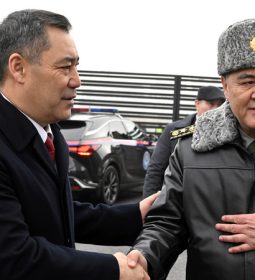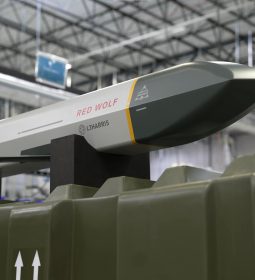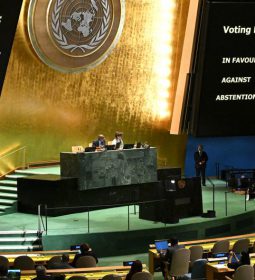Turkmenistan: IMF Brings More Bad News on Economic Front

A team of International Monetary Fund specialists have concluded their latest visit to Turkmenistan and returned with some sobering observations on the state of the energy-dependent nation’s economy.
One key takeaway from a statement issued on December 6 is that the government will have to adopt greater measures to compensate for the expected persistence of low prices for oil and gas.
“Hydrocarbon prices remain low and trading partner growth is muted. As a result of these external factors, Turkmenistan’s overall economic growth has slowed down,” the IMF mission said in a post-visit statement.
These confluence of developments means that Turkmenistan is spending beyond its means, and that this trend is worsening.
“The current account deficit is expected to widen significantly in 2016 as a result of lower energy revenues, and in spite of an active policy effort to substitute imports with domestic production, promote exports, and reduce public investment expenditures,” the IMF mission said.
President Gurbanguly Berdymukhamedov has advanced import substitution as a cure-all panacea to his country’s troubles. Not that any officials have admitted there is anything wrong with the economy, which may be part of the problem, as the IMF mission implies.
“Amid multiple external policy challenges and a number of domestic reforms, stepped-up communication efforts to explain policy plans, their benefits as well as the possible side effects, would be helpful,” the fund delegation said.
Areas for improvement highlighted by the IMF mission included “increasing the efficiency of public spending,” improvement to banking regulations and taking more steps toward creating a more market-based economy and financial sector.
“The authorities’ intention to accelerate development of the private sector is appropriate and should be based on market-based principles as much as possible, so as to support growth and living standards in a sustainable manner,” the mission said.
Turkmenistan continues to report economic growth, but such figures, while faithfully relayed by the IMF, are collated in an opaque and unverifiable fashion. Living standards appear, if anything, to be on a marked trajectory of decline.
Prices for basic groceries and drugs have increased regularly throughout the year — a development that has been attributed in part to the government’s draconian currency control regime, in place since late last year. In many instances, shoppers in Turkmenistan have reported some goods disappearing from the stores altogether. The few journalists inside the country willing to report on such developments have been on the receiving end of assaults or trumped-up criminal investigations.
RFE/RL’s Turkmen service, whose correspondents have faced the brunt of that intimidation, have continued to report on the details of the prices undeterred. In an article published on December 6, the service reported that prices for candy, cookies and pastries, as well as nuts, pistachios, almonds have risen twofold over the past week. Part of this is a knock-on effect of the shortages of sugar and cooking oil. In the meantime, countless state employees are struggling as wage arrears mount.
Import substitution is touted as a solution to such price inflation, as well as the key to solving the diversification boondoggle. A growing number of processed goods — flour, dairy products, eggs, vegetables, confectionery, soda drinks and tinned fish — are being made by local companies, which are subsidized generously by the state, although it is known exactly by how much.
But if reports from shops and markets are anything to go by, local manufacturers are failing miserably to address the shortfalls.
- Previous Former Thailand Prime Minister Yingluck for planned measures to boost economy
- Next Uzbekistan Touts Possible Direct Gubernatorial Elections




